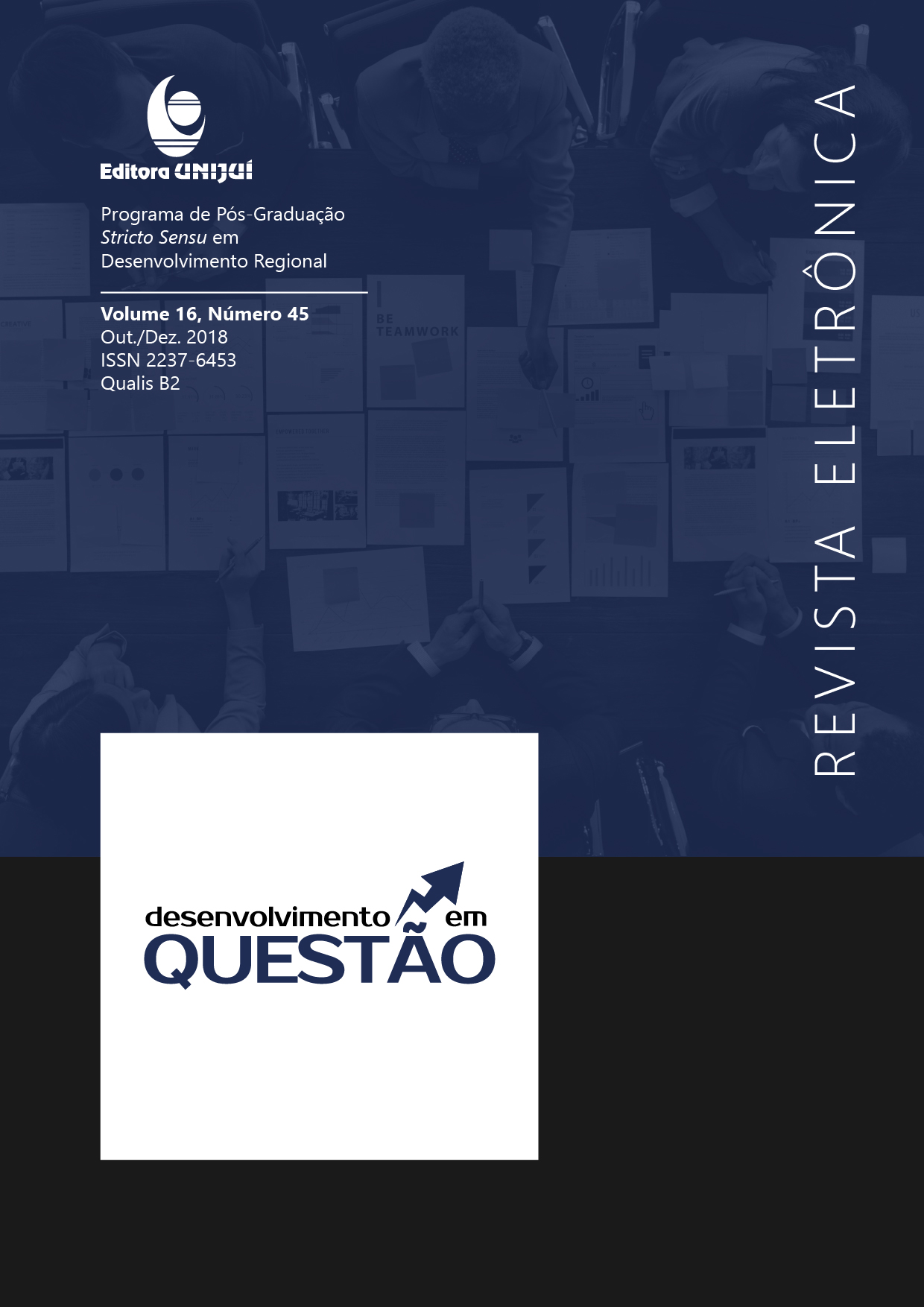Aplicação do Método Mesmis para Análise da Sustentabilidade de Sistemas de Produção da Pecuária Familiar em Área do Bioma Pampa no Rio Grande do Sul
DOI:
https://doi.org/10.21527/2237-6453.2018.45.354-376Keywords:
sustentabilidade, pecuária familiar, soja.Abstract
Por representar um conjunto de ecossistemas muito antigos, o Bioma Pampa apresenta flora e fauna próprias e grande biodiversidade, ainda não completamente descrita pela ciência. Desde a colonização ibérica, a pecuária extensiva (bovinos de corte e ovinos) sobre os campos nativos tem sido a principal atividade econômica da região. A progressiva introdução e expansão das monoculturas e das pastagens com espécies exóticas têm levado a uma rápida degradação e descaracterização das paisagens naturais do Pampa. O objetivo deste artigo é avaliar a sustentabilidade de diferentes sistemas de produção da pecuária familiar no Rio Grande do Sul. Foi utilizado o método MESMIS para a analise de sustentabilidade de três grupos de sistemas de produção identificados: Campo Nativo (CN), Campo Nativo e Cultivos (CN+C) e Campo Nativo e Soja (CN+S). Foi identificada diferença significativa (p<0,05) para o atributo “Produtividade” entre os sistemas CN+C e CN+S, sendo o primeiro superior ao segundo. Para os demais atributos de sustentabilidade não houve diferenças significativas entre os sistemas de produção da pecuária familiar estudados.
Downloads
Published
How to Cite
Issue
Section
License
By publishing in Revista Desenvolvimento em Questão, authors agree to the following terms:
All works are published under the Creative Commons Attribution 4.0 International License (CC BY 4.0), which allows:
Sharing — to copy and redistribute the material in any medium or format;
Adaptation — to remix, transform, and build upon the material for any purpose, even commercially.
These permissions are irrevocable, provided that the following terms are respected:
Attribution — authors must be properly credited, a link to the license must be provided, and any changes made must be indicated.
No additional restrictions — no legal or technological measures may be applied that legally restrict others from doing anything the license permits.
Notices:
The license does not apply to elements that are in the public domain or covered by legal exceptions.
The license does not grant all necessary rights for specific uses (e.g., image rights, privacy, or moral rights).
The journal is not responsible for the opinions expressed in the articles, which are the sole responsibility of the authors. The Editor, with the support of the Editorial Board, reserves the right to suggest or request modifications when necessary.
Only original scientific articles presenting research results of interest that have not been previously published or simultaneously submitted to another journal with the same purpose will be accepted.
Mentions of trademarks or specific products are intended solely for identification purposes and do not imply any promotional relationship by the authors or the journal.
License Agreement (for articles published from 2025 onward): Authors retain the copyright to their article and grant Revista Desenvolvimento em Questão the right of first publication.











